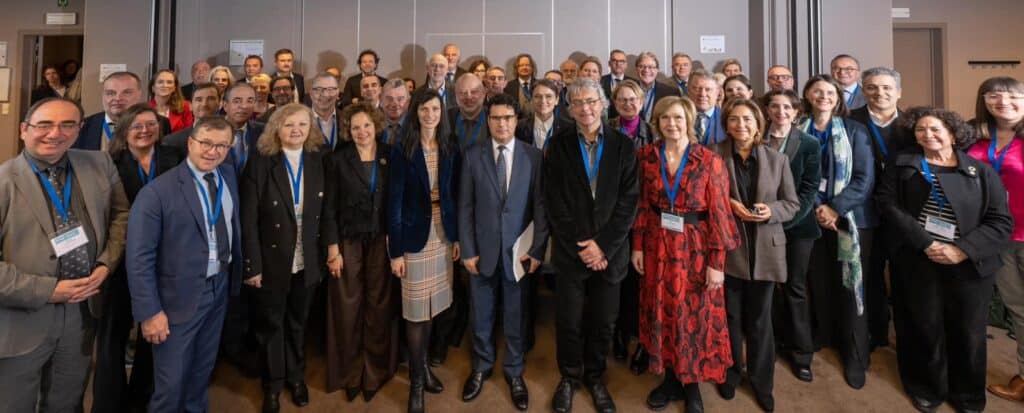On 30th and 31st January, Rectors representing each of the 44 current European University Alliances met in person in Brussels in the presence of Mariya Gabriel, European Commissioner for Innovation, Research, Culture, Education, Youth and Sport. The EU4ART Alliance was represented by prof. Kristaps Zarins, the Rector of the Art Academy of Latvia.
The aim of this meeting was to have an open discussion for and between Rectors of European Universities based on their already vast knowledge and experience. This was also an opportunity to exchange good practices that European Universities are putting in place to succeed and common challenges they are facing.
During the first day of meetings, the topics selected for the open discussion between Rectors were connected to the long-term ambition of the alliances and how the overall strategy of each institution needs to be fully aligned with the strategy of their alliance. They also discussed about the staff members and students to be intensely committed and dedicated to the alliances. Representatives of the European Commission presented the gathered rectors with a long-term strategy of the initiative in terms of financing, introducing further legal elements, integrating the education process in the international context, programs supporting research within partnerships and other strategic issues undertaken at the level of EU and national governments.
The Rectors talked about their own good practices in terms of building a European inter-university campus to share resources and pool the educational offer through enhanced student mobility, new innovative pedagogies, transnational joint educational activities or modalities to generalize the alliances’ innovative activities to more faculties so that a majority of their students and staff can benefit from it.
The next day, the Rectors had the chance to meet Commissioner Gabriel in order to discuss those topics and joining forces to make European higher education thrive. In this sense, the open high-level dialogue aimed to contribute to Europe’s resilience and recovery.
Finally, the meeting concluded with a discussion about the strategic vision on stimulating cooperation between the alliances and fostering outreach towards the higher education communities and innovation ecosystems. An emphasis was placed on close cooperation between higher education institutions and their innovation ecosystem, in particular start-ups and SMEs, and cooperation between the alliances themselves to enhance exchanges on good practices.
